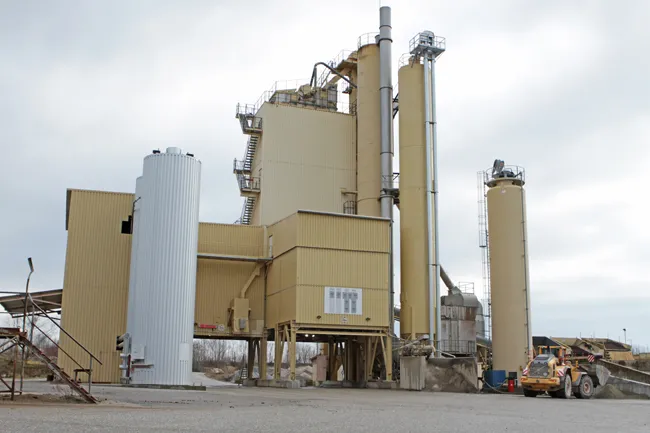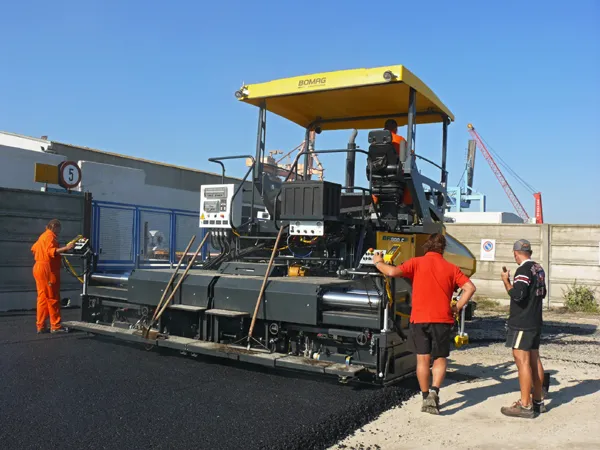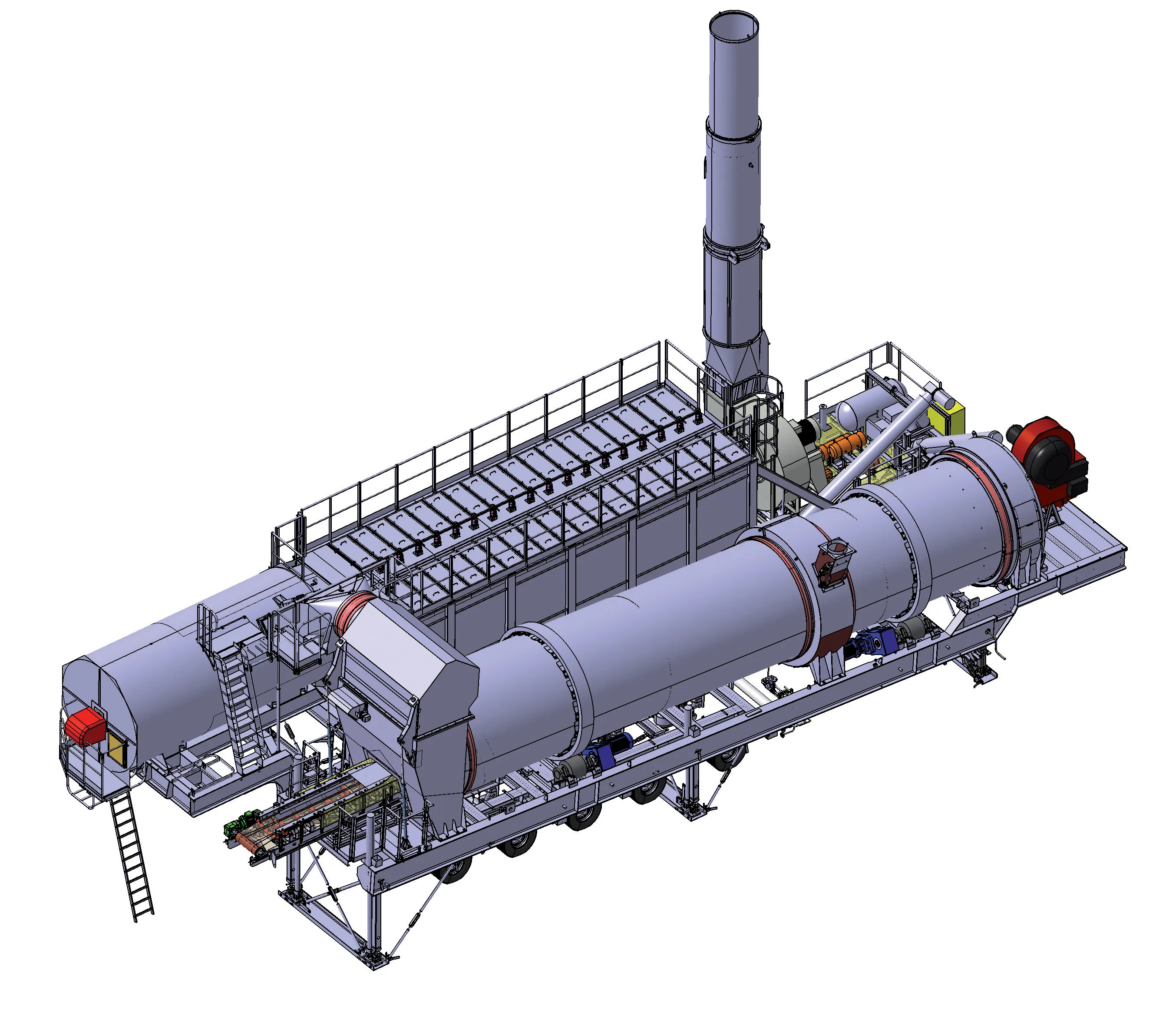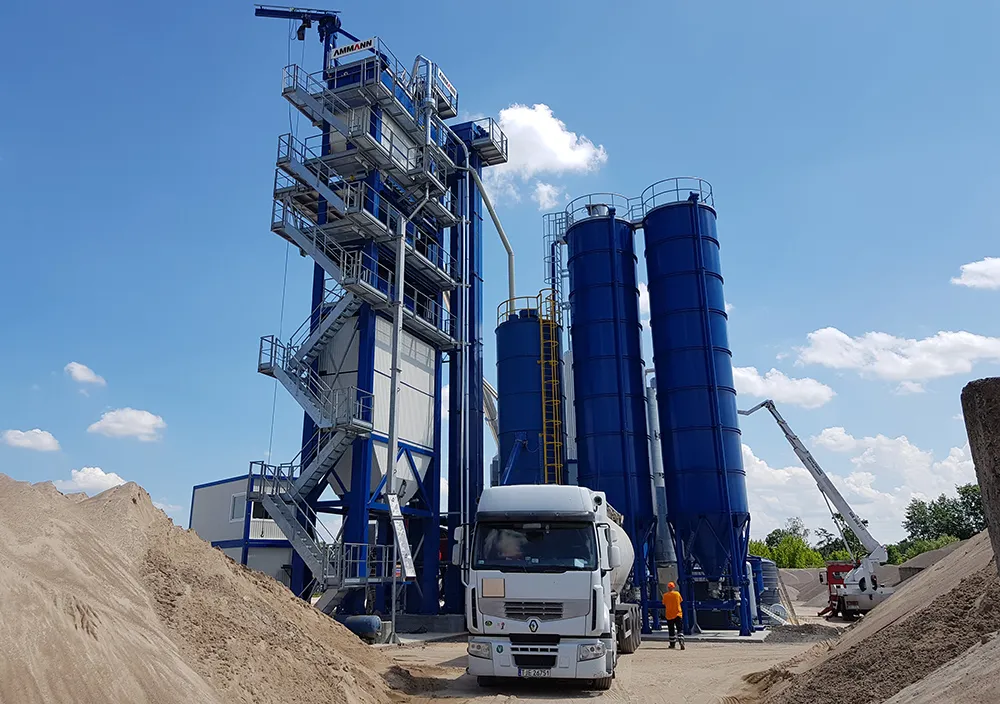
The ABA 210 UniBatch asphalt mixing plant was bought by TRAKT Co and is being used to supply a wide array of asphalt mixes for a range of road building projects as well as road repair works.
The plant is said to be proving highly versatile, delivering various mix types as well as those including recycled asphalt (RAP). TRAKT is providing materials for use on municipal roads, delivering between three and five different types of mixes/day. However, Jerzy Szklaruk, president of TRAKT says that the design of the plant makes it easy to switch quickly to the production of different recipes.
A key driver behind purchasing this new plant was its capacity of 210tonnes/hour. The previous plants produced mix at a maximum rate of 80tonnes/hour, which was typically enough for TRAKT projects.
However, Szklaruk said that increased demand for materials means that the firm now needs a greater capacity, which was why the company opted to buy a plant able to deliver 210tonnes/hour. He said that for large contracts, the performance of the plant delivers a healthy margin for the entire project.
The new plant also provides high production while ensuring high quality, which is watched more closely than ever. Szklaruk explained that quality control from road project managers is now more demanding than in previous years.
TRAKT specified its ABA 210 UniBatch with a cold recycling system and a BKS coal dust burner. The firm plans to add an asphalt foaming capability as well.
Szklaruk said that the firm equipped the plant with recycling components to meet expected future demand. He explained that while relatively little RAP is used in the region at present, he expects this to increase and already sees signs of a growth in this segment. And whenever there is a project using RAP, the firm is now more competitive.
As the company is located close to forests, green areas and pastures, the low emissions performance of the plant was a key benefit. Szklaruk said that the efficient Ammann filter system was another important factor in the company opting for this model. The plant also features sound suppression equipment, another important factor in the selection of this unit. Ribbed sheets in the discharge channels reduce sound and improve wear resistance. Szklaruk said, “There are other small production facilities around us, but also residential buildings. The inverters and insulation installed in the plant reduce noise.”
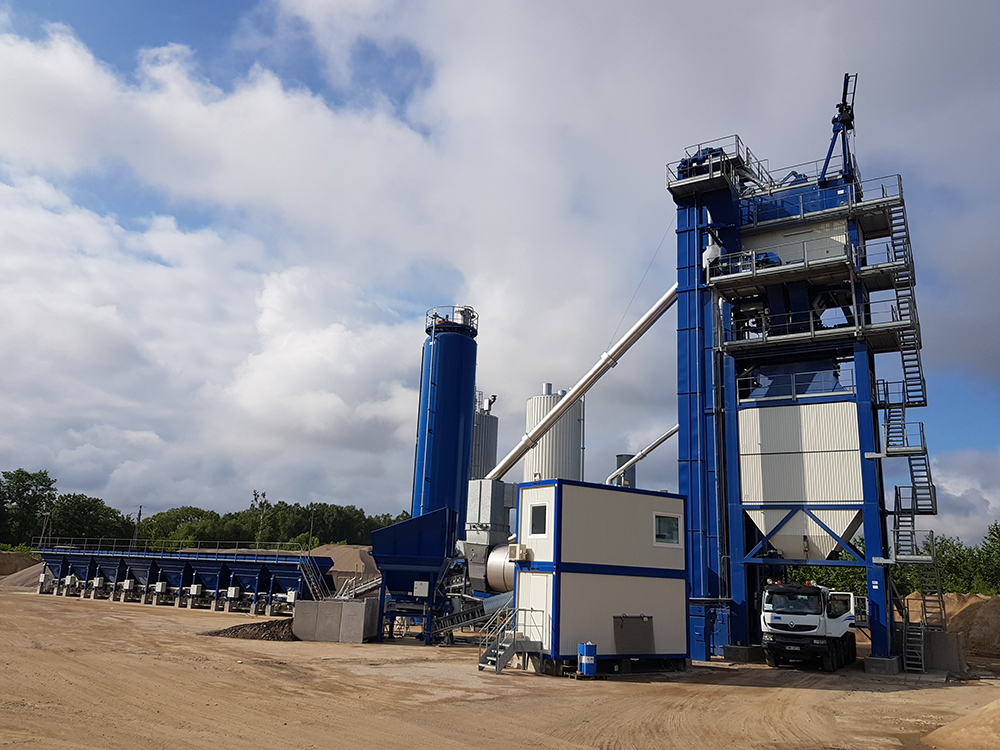
TRAKT had positive experiences with other Ammann plants, so the company again turned to Ammann when looking for improved productivity. Szklaruk said that the firm’s previous Ammann plants offered advantages over competitors.
Szklaruk said that particular advantages of the plant lie in the aggregate sorting, filter system and control system. He added that the Ammann plant runs smoothly, is easy to use, economical, popular with operators and allows the production of bituminous mixes of high quality at low cost.
Meanwhile, the modular design of the plant allows it to be upgraded in the future. He said that the construction of the ABA UniBatch allows frequent adjustments, featuring proven components and systems from Ammann’s ABP Universal plants.
Other features of the ABA 210 UniBatch that offer precision and efficiency include the double-stroke actuators for dosing aggregate and inverters on the main fan, according to Szklaruk. He said the plant delivers precise dosing of material with the mixer screw and the latest control system. Szklaruk said that the proprietary as1 Control System is very extensive and gives practically unlimited possibilities, while also being intuitive and modern. As Ammann provides the control, this helps with servicing. Features the firm find useful include the ability to transfer data to the manager on a memory stick, so that the operator does not have to manually rewrite or print it. The Ammann service team can connect remotely, while the plant operator can see what the team is doing on the computer screen, another benefit.
The plant is economical due to the brown coal dust burner as well as its electrically heated asphalt tanks. The comfort of the operator cabin has been praised by the firm, as has access to components for maintenance.


